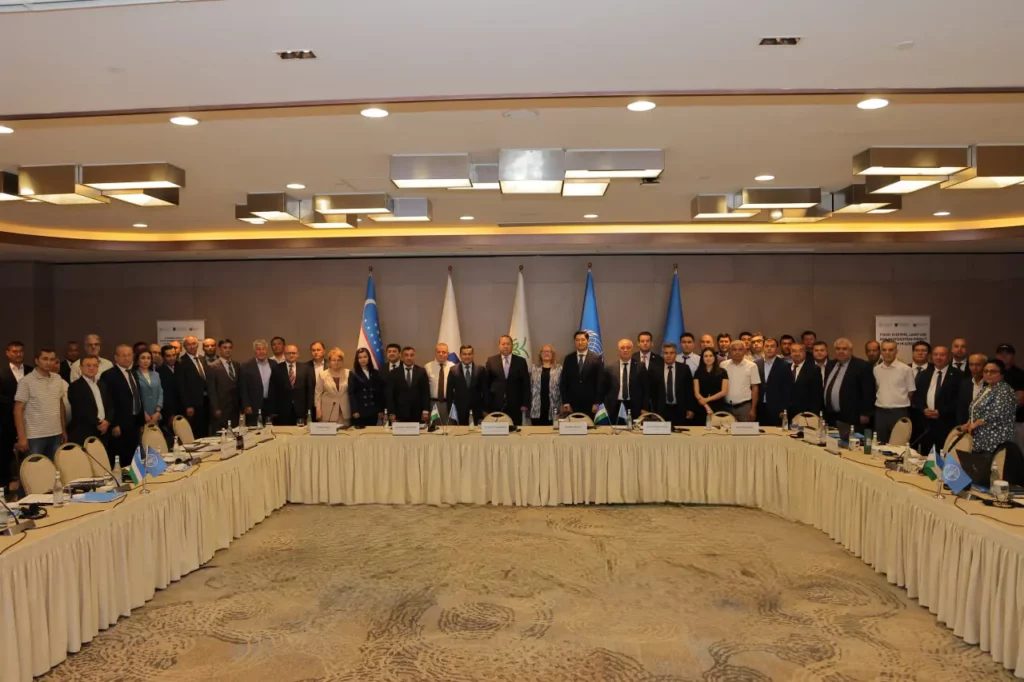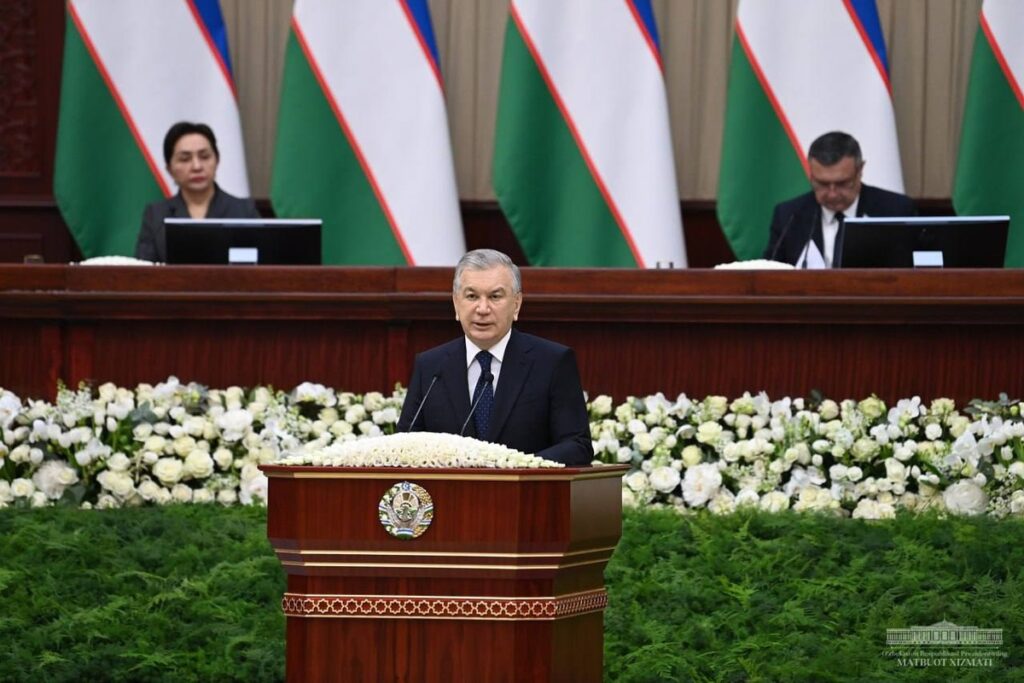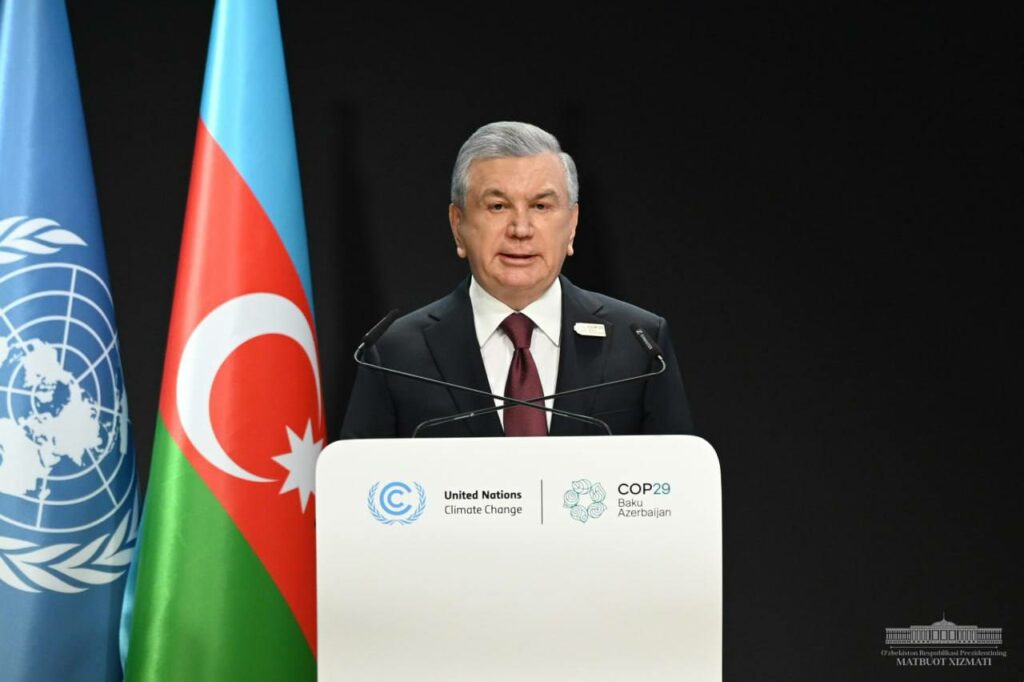The event was attended by Deputy Minister of Ecology, Environmental Protection and Climate Change Zhusipbek Kazbekov, UN Resident Coordinator in Uzbekistan Sabina Makhl, representatives of government and international organizations, leading experts in the industry and relevant departments.
The aim of the event is to focus on the priorities of the FOLUR program in transforming the agri-food sector of Uzbekistan by addressing key environmental and climate issues.
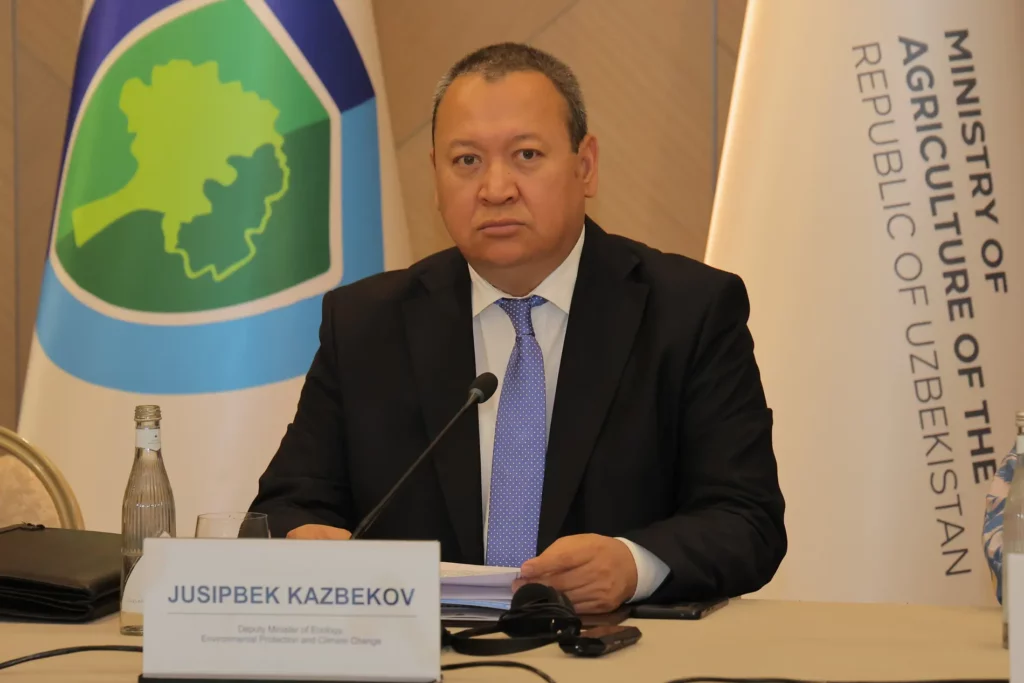
“The project is supported at the government level and is included in the Action Plan approved by the decree of the head of our state dated June 10, 2022 “On measures to create an effective system to combat land degradation” and covers Kashkadarya, Khorezm regions and the Republic of Karakalpakstan. The goal is to introduce best practices and innovations to create sustainable and inclusive production landscapes and value chains based on wheat. The program is also aimed at protecting ecosystems and biodiversity in our country,” said Zhusipbek Kazbekov.
The FOLUR programme aims to promote the widespread adoption of efficient land management technologies and conservation approaches, and the creation of environmentally friendly production and supply chains to implement the transition from ecosystem degradation to sustainable management with multiple benefits.
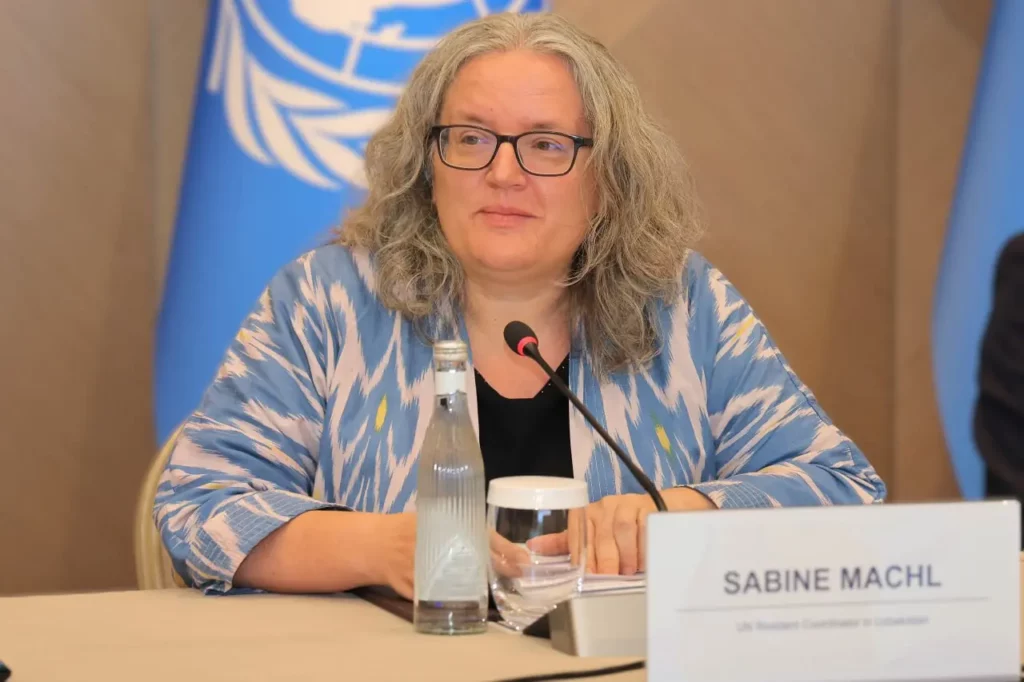
“This project marks the beginning of our joint efforts to support Uzbekistan’s initiatives to combat land degradation. I am confident that with the successful implementation of FOLUR, we will be able to jointly address the problems of soil and agricultural land degradation, lay the foundation for sustainable agriculture and improve the quality of life of people. I encourage everyone to actively participate in the development of the work plan, as each of your contributions will be an important factor in ensuring the success of this initiative,” said Sabina Mahl.
The launch of the project represents a significant step towards sustainable agriculture and environmental conservation in line with the Sustainable Development Goals (SDGs). Agricultural expansion driven by growing demand for food, coupled with low productivity in the agri-food sector, is responsible for 80 percent of global deforestation, 70 percent of global freshwater withdrawals, and is a major driver of landscape degradation and biodiversity loss, and nearly 30 percent of global greenhouse gas emissions. These challenges pose a threat to food security, nutrition, poverty reduction, and broader socio-economic progress. Given Uzbekistan’s sharply continental climate with hot summers, drought conditions, and variable temperatures, the country faces unique agricultural challenges. Desert soils, characterized by low organic matter content and poor structural properties, limit agricultural productivity.
“The project is aimed at increasing the productivity of wheat production while reducing the negative impact on ecosystems and biodiversity, as well as expanding the production and distribution chain. It will be implemented in 6 districts of three regions of our republic. Within the framework of the project, in cooperation with the International Union for Conservation of Nature (IUCN), by equipping the reserves with modern equipment, the negative impact exerted on them by residents of surrounding villages will be reduced. One of the goals of the project is to identify the sources of dust storms, which have become more frequent in our republic in recent years, and to develop measures to prevent them,” emphasized Aziz Nurbekov, national coordinator of the FOLUR project.
As part of the FOLUR project, it is planned to carry out ecological restoration of territories with a total area of 50 thousand hectares, another 50 thousand hectares will be transferred to improved biodiversity management methods, and lands occupied by wheat, with a total area of 300 thousand hectares, will be transferred to improved land management methods.

